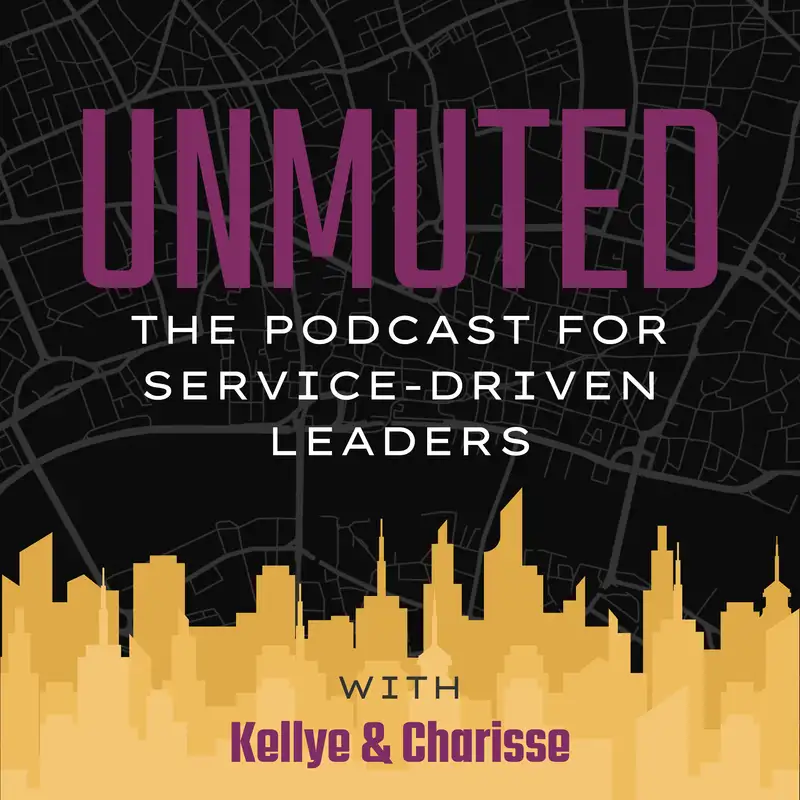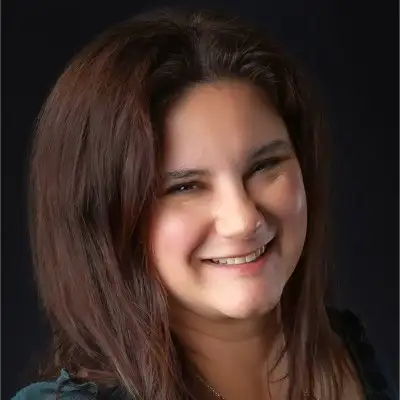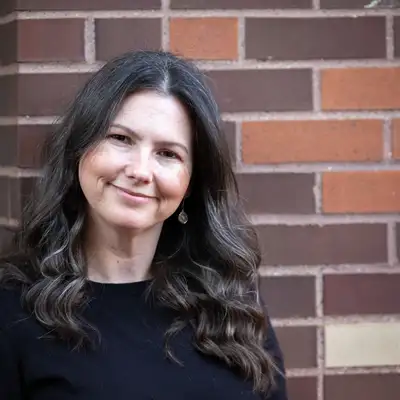Kellye Mazzoli (00:32)
Welcome to Unmuted. Today we're talking about optimism and pessimism in leadership, or maybe more accurately, the space in between them. In public service, the system is designed for safety to minimize risk, protect public resources, and avoid mistakes. That's a good thing. However, until it starts to stifle the very innovation that communities depend on.
Charisse Deschenes (00:58)
Yeah, Kellye, the tension leaders live with every day, man, that pool between vision and risk, progress and protection. We've both sat in rooms where a great idea landed on the table and before the conversation could even take shape, someone said, that's not in the budget or that opens us up to liability. Suddenly the energy shifts and seems like what's possible maybe becomes a little bit.
Kellye Mazzoli (01:16)
Mm-hmm.
Charisse Deschenes (01:25)
impossible in that moment and we were talking about what can go wrong instead of what could go right.
Kellye Mazzoli (01:31)
And that's why today I think we want to talk about hope, not as a soft emotion, but as a serious leadership practice. Because I think that goes beyond, I mean, when I say hope, I really mean possibility. In government though, that can feel a little risky. And the truth is, it's really though the only thing that moves a system forward.
Charisse Deschenes (01:52)
So why does hope feel risky? I think hope gets misunderstood because we're conditioned to equate safety with success and everything is built to prevent loss, financial, political and reputational loss.
That kind of thinking slowly trains people to believe that the safest thing to do is to do nothing sometimes, or nothing new anyway. I remember working on projects where we would brainstorm creative solutions, but as soon as maybe people on the team that were more concerned with risk, which is maybe their role, like the attorneys and the finance team, they raised the concern, and the idea maybe fades away a little bit more.
Not because it was a wrong idea or what they were doing was wrong, but it was an unfamiliar kind of road that we hadn't considered before. The culture itself has learned that the predictability equals protection. But really, here's what strong leaders understand. Risk isn't something to fear. It's a signal that you're doing something that matters. And risk means there's motion.
And when we see it that way, we can stop treating caution as a stop sign and start treating it as a checkpoint.
Kellye Mazzoli (03:07)
Mm-hmm. Yes, yes. There's this tendency to keep going with the tried and true or whatever it is that your neighbor is doing successfully in local government, because we share, which is a great thing that we share and that we have that ability. You know, we're not like private companies in that sense where everything's so protected that we can't help one another and not reinvent the wheel, but.
Charisse Deschenes (03:19)
Yes!
Kellye Mazzoli (03:32)
I do think that sometimes we end up in a rut.
Charisse Deschenes (03:35)
I remember having
conversations around this in work about, okay, should we be the first one out of the gate with that? No, let's see what they're going to do before we decide what we're going to do multiple times.
Kellye Mazzoli (03:43)
Right? Mm-hmm. Mm-hmm.
There was definitely, I had a particular council where if we showed up to the council meeting and we hadn't included what our neighbors were doing in the other neighboring cities, what they were doing and what the results were, they wouldn't even consider it. I mean, really honestly, like that became part of our agenda packet regularly. But I would say...
I think that leadership is not about, it's not about ignoring risk, right? So I don't want to take it full swing the opposite way. I want to say that maybe it's about holding risk with purpose. So we want to listen to our advisors, to the city attorneys, to our director of finance. I think that's really important. And we want to gather the facts. But at the end of the day,
Leadership really is about making a judgment and a judgment call. So I think one of the most powerful questions that I can give you, this is the one that I learned to ask was what is the cost of saying no? Because in not doing something, there is always a cost and it may not be immediate, but it might be morale. It might be
eroding to community trust whenever we don't do anything, it might even slow down creativity or just even like lose it as a whole across the organization. So I think every time that we avoid risk, we're actually choosing a different kind of loss and we need to process that and we need to hold that and think about it and be very intentional. So the cost of saying no isn't just that we mitigate the risk or the potential unknown risk that we think might be there.
but it's also all of those other things that we lose out whenever we're not progressing forward.
Charisse Deschenes (05:37)
Kellye, that's such an important mindset shift. The safest path can also be the most damaging over time if we never really reach out and take that risk. Great point.
Kellye Mazzoli (05:47)
Yeah.
Yeah, and I think, I mean, we can hold both the truth, the facts, along with the possibility. So when you've been in leadership long enough, I do think that you start to internalize some of the cautious voices, because you've heard them over and over again, and they sort of become a repetitive story. And I think that's what's really important is about sussing out the difference and knowing the difference between a story you're telling yourself and what the true facts are of this
this particular situation. So even when no one else is in the room, your brain might start running an old script. That's too risky, the council will never go for it, I know how this ends, what if this fails publicly? Like when those things start automatically running, then you have to start twisting it just a little bit. You have to reframe it. And that's where grounded optimism comes in.
So I want to say like, it's not that we pretend that everything's gonna be fine. It is believing that no matter what happens, you can navigate it. Knowing you can weigh the data, you can honor the constraints, and you can still choose forward motion that is creative and innovative and specific to your community and your city.
Charisse Deschenes (07:02)
yes optimism it's not blind faith right it's it's practiced courage it's the discipline to keep asking what if even if a system is designed to say no and sometimes that optimism has to be structured if you really want creativity you can't just talk about it you have to make room for it.
You have to set up an innovation fund or create a pilot project or something that isn't just that we're trying this now. You know, there has to be some guardrails around it, build a process that allows experimentation inside that system. Because when you design for innovation, people start fighting the structure and they start partnering with you, but you have to take the time to work on it a little bit. Sometimes people think that, you know, that optimism and that creativity are just things that happen, but
I think the important thing there is actively take the time to make room for it.
Kellye Mazzoli (08:01)
comes from leadership maturity. Creating both the guardrails and the green lights at the same time. So risk managers can breathe easier because there's a process, so those people in your organization that are in that role, but then your creative thinkers can also have a place to try something new without fear of being shut down. It's the best of both worlds.
Charisse Deschenes (08:25)
Yeah, that's how you shift culture too, by showing people that hope isn't reckless. It's responsible and it's paired with good design, When was the last time you dismissed an idea too quickly? Not because it was wrong, but because it didn't fit an old model.
Kellye Mazzoli (08:27)
Mm-hmm.
Mm-hmm.
I think all the time. I mean, I have to consciously go back and say, hey, it's okay to think outside the box. I mean, in fact, everything about building a business and shifting into an entrepreneurial sort of mindset really has been about shifting away from the old model of doing.
Charisse Deschenes (09:03)
Yeah,
yeah, I think that like, if I were looking at myself, sometimes I've made that mistake of just wanting to innovate and be really excited about the creativity and needing to take that time to really work out the process because I've been in that spot where I may maybe wasn't as a mature of a leader and needed to innovate but do it in a way that brought everyone together. So I think I can see both sides of the coin with our discussion here.
Kellye Mazzoli (09:29)
Yeah,
I mean, it's it's responsible innovation, right? Responsible creativity. I think it can be both. I think it can be both. So let's talk a little bit about the inner work of hope or possibility. I think that this is another side of it, that there is an emotional and physical side of leading in what we think is a risky situation. So if you are living in a constant state of what could go wrong,
Charisse Deschenes (09:34)
Yeah.
Kellye Mazzoli (09:56)
mode, that really starts to affect your body. We talk a lot about cortisol and stress and I think whenever you're asking yourself what could go wrong constantly, that's exactly what happens and your nervous system is on high alert. So we talk a lot about grounding and anchoring and that those practices matter and I'm just gonna bring it back here because it doesn't matter whether it's walking, writing or sitting quietly. You can pick.
but you have to regulate before you jump in to evaluate new ideas, ones that make you feel a little anxious, ones that carry that risk with you. So when you can stop and you can steady yourself, you can actually make space for some clear thinking. And that I think honestly is where my best decisions have come from. And for my clients, I know that's where their best decisions come from.
Charisse Deschenes (10:47)
leaders who know how to stay centered, lead calmer teams. So when people feel your steadiness, and we've mentioned this many times before, they become more creative and they're more willing to try something new. They're also more relaxed. The whole organization starts to breathe again. The more regulated you are, the more courage you can hold.
Kellye Mazzoli (10:52)
For sure. For sure.
Charisse Deschenes (11:13)
And so can your team. So remember that when you're in that situation where you could just say no, what's the other alternative? And how might you be able to say yes together and work through those problems as a calm team? I would say hope isn't naive when it's grounded in that calm awareness, when you reflect on your own work and where you can remain more curious instead of cautious.
Kellye Mazzoli (11:39)
Ooh, more curious than cautious. I always talk about curious and I never really thought about the opposite of that being cautious, but yes, it is. I always say, I mean, in local government, we're very risk averse. I start so many conversations with that, especially for people outside the industry and people in the industry, but yes, just that I love that dichotomy between curious over cautious.
Charisse Deschenes (11:39)
I would think like, yeah, more curious, yeah.
Yeah. Yeah, Kellye. I think the possibilities are endless when you start to think about it and open it up in that way. So we have a challenge this week for our listeners. So the challenge is listen for the voices in the room, especially ones that default to caution. Why is that?
Kellye Mazzoli (12:06)
Where would that take us?
then listen to your own. You gotta ask yourself what's underneath that no? Is it protection, really? Or maybe it's a little bit of fear. Let's be honest.
Charisse Deschenes (12:36)
Mm-hmm. Could be that. The awareness is where leadership begins.
Kellye Mazzoli (12:42)
I love it. Awareness is where leadership begins. We always talk about it. Be aware, be curious, be present. That's where the grounding comes in. It's still, it's just so important day by day. Thank you for listening. Until next time, remember to stay unmuted, stay grounded, and keep leading from that space between safety and possibility.


